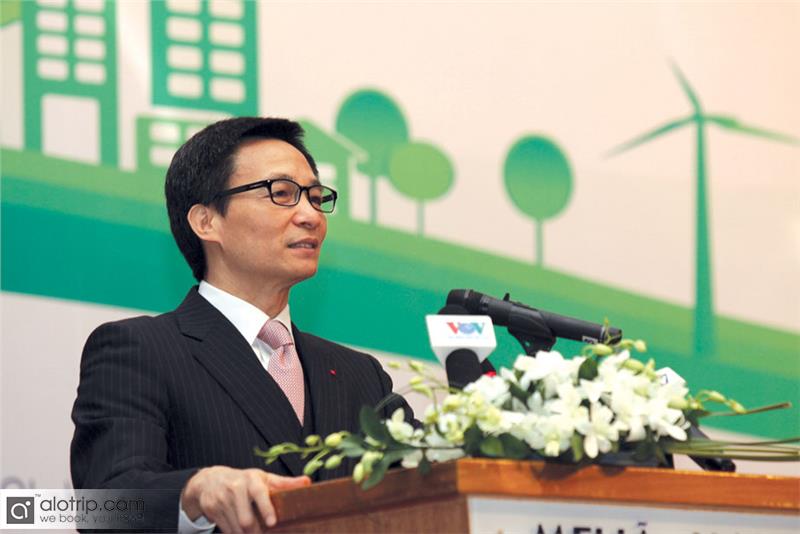On March 20th 2014, the Prime Minister has approved the national action plan for Vietnam green growth strategy for the 2014 -2020.
The plan concentrates on 4 main missions: building institutions and plans on green growth in localities, reducing the emission of greenhouse gases and encouraging clean and renewable energy; greening production and lifestyle; and stimulating sustainable consumption. This is a long-term plan which is executed during 7 years from 2014 to 2020. Some main actions under the plan are, namely, associating green growth with socio-economic projects, making plans and piloting some models of small-scale “green growth” in large cities such as Hanoi and Ho Chi Minh City, and supporting small and medium-scale businesses to upgrade and improve production line by using energy sparingly and effectively.
Accordingly, ministries, the People’s Committee of provinces and cities and relevant agencies which are assigned to implement the green growth will be responsible for proposing solutions based on the master plan. Actions under this plan are required to be implemented uniformly to achieve the best result. The target of those actions is to raise awareness of people, complete institutions, change economic structure of localities and enterprises and improve technology.

In the field of tourism, the Ministry of Culture, Sport, and Tourism has duty to develop eco-tourism efficiently. To achieve this goal, missions on the list of priorities are encouraging investment and training human resource of eco-tourism. Once implemented, the plan will create jobs and increase the income for people, also improve the quality of landscapes and environment as well.
The capital for green growth plan is taken from the State budget under the program of support for climate change, funds of enterprises and international aid. Ministries, localities and relevant agencies according to Government’s assignment are responsible for managing State budgets (including Central and local one), mobilizing sources of enterprises, supporting international organizations.
The government will spend adequate budgets for the plan of green growth. Especially, saving energy and developing renewable sources are given priority. Financial organizations and investment enterprises are encouraged to perform projects relating to green growth through favorable policies. Some specific policies which have been taken into consideration are promoting private sector engagement and green foreign direct investment, encouraging further development of market-based mechanisms and financial instruments, considering a shift in fiscal policy towards taxation through wider application of eco-taxes and carbon tax, and increasing management and coordination in using domestic and international financial resources for responding to climate change.
At the meeting of consultation on action plan for the Vietnam green growth strategy within ASEM forum, Ms. Pratibha Mehta, the UN Resident Coordinator have stated that the national action plan is considered to be a key step towards realizing Vietnam’s green growth vision. It is also an opportunity to move away from heavy reliance on natural capital, such as forestry, fisheries and minerals. Consequently, the livelihoods of many rural poor who depend mostly on natural resources will be protected.